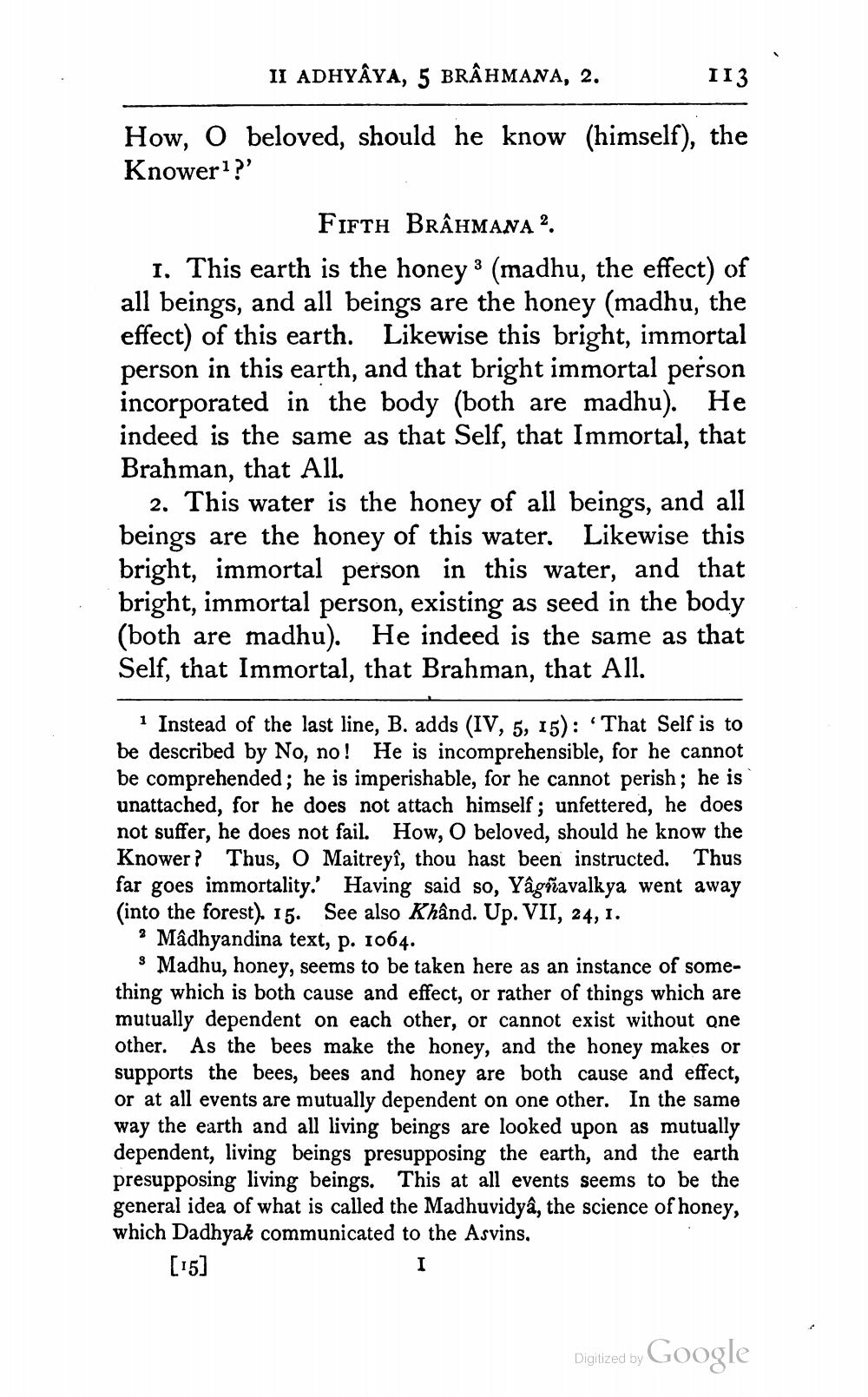________________
II ADHYAYA, 5 BRÂHMANA, 2.
II3
How, O beloved, should he know (himself), the Knower??'
Fifth BRÂHMANA 2. 1. This earth is the honey 3 (madhu, the effect) of all beings, and all beings are the honey (madhu, the effect) of this earth. Likewise this bright, immortal person in this earth, and that bright immortal person incorporated in the body (both are madhu). He indeed is the same as that Self, that Immortal, that Brahman, that All.
2. This water is the honey of all beings, and all beings are the honey of this water. Likewise this bright, immortal person in this water, and that bright, immortal person, existing as seed in the body (both are madhu). He indeed is the same as that Self, that Immortal, that Brahman, that All.
Instead of the last line, B. adds (IV, 5, 15): "That Self is to be described by No, no! He is incomprehensible, for he cannot be comprehended; he is imperishable, for he cannot perish; he is unattached, for he does not attach himself ; unfettered, he does not suffer, he does not fail. How, O beloved, should he know the Knower? Thus, O Maitreyî, thou hast been instructed. Thus far goes immortality. Having said so, Yâgñavalkya went away (into the forest). 15. See also Khând. Up. VII, 24, 1.
Mâdhyandina text, p. 1064 s Madhu, honey, seems to be taken here as an instance of something which is both cause and effect, or rather of things which are mutually dependent on each other, or cannot exist without one other. As the bees make the honey, and the honey makes or supports the bees, bees and honey are both cause and effect, or at all events are mutually dependent on one other. In the same way the earth and all living beings are looked upon as mutually dependent, living beings presupposing the earth, and the earth presupposing living beings. This at all events seems to be the general idea of what is called the Madhuvidyâ, the science of honey, which Dadhyak communicated to the Asvins.
[15]
Digitized by Google




